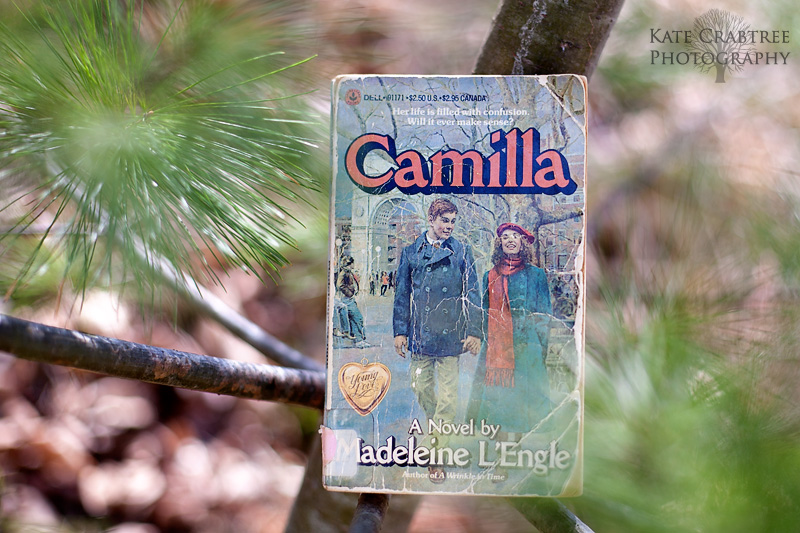I've been reading a lot recently-- I keep a detailed calendar of when I finish books, and since March 1st I have devoured 12 books. This is a bit more than usual, but I've had so many books unread on my bookshelf and that's always a siren call I can't ignore. This is one of my favorite books among the 12 I've read recently-- I hope that if you, too, pick it up, that you'll enjoy it!
Many people know Madeleine L'Engle for her famous children's novel A Wrinkle In Time. It, along with it's sequel, A Wind in the Door, are two of my favorite books-- in fact, I even had a passage read from A Wind in the Door at my wedding. Madeleine L'Engle is brilliant at not only crafting intriguing plots and exploring complex social and ethical issues, but she really shines at constructing characters who are unbelievably real. Meg, the main character in those two novels, is pure adolescent girl and struggles with her sense of self when people question her perspective. She is filled with confusion as she tries to understand herself and the world (and the universe!) that she lives in.
Camilla, another novel by L'Engle, is essentially a character study hidden within the framework of a romance novel. Camilla's world is changing; she has caught her mother cheating on her father and now her worldview has shifted from a childlike acceptance of everything as pure to one of adult skeptical questioning. During this time she meets a boy, a friend's brother, whom she quickly falls in love with. However, as much as their relationship is at the front and center of the novel, it is essentially a backdrop to Camilla's shifting understanding of the world and herself. Frank, an intelligent individual, helps in her re-education, along with David, a war veteran, and Frank's sister (her kind-of best friend), Luisa, who attempts psychoanalysis on her to help her understand how she has been shaped by her family and her experiences. Camilla character is written so convincingly that she feels as if she is sitting right next to you-- every time she expresses emotion feels completely natural and can even be predicted by what is happening around and in her. And, by the end of the novel, it's hard to not feel that you, too, have changed.
The novel is a bit old (it was written in 1965 and takes place in 1950), but feels modern because its main focus on the human experience is timeless and universal. Pick up a copy and let me know what you think!
Share this story
